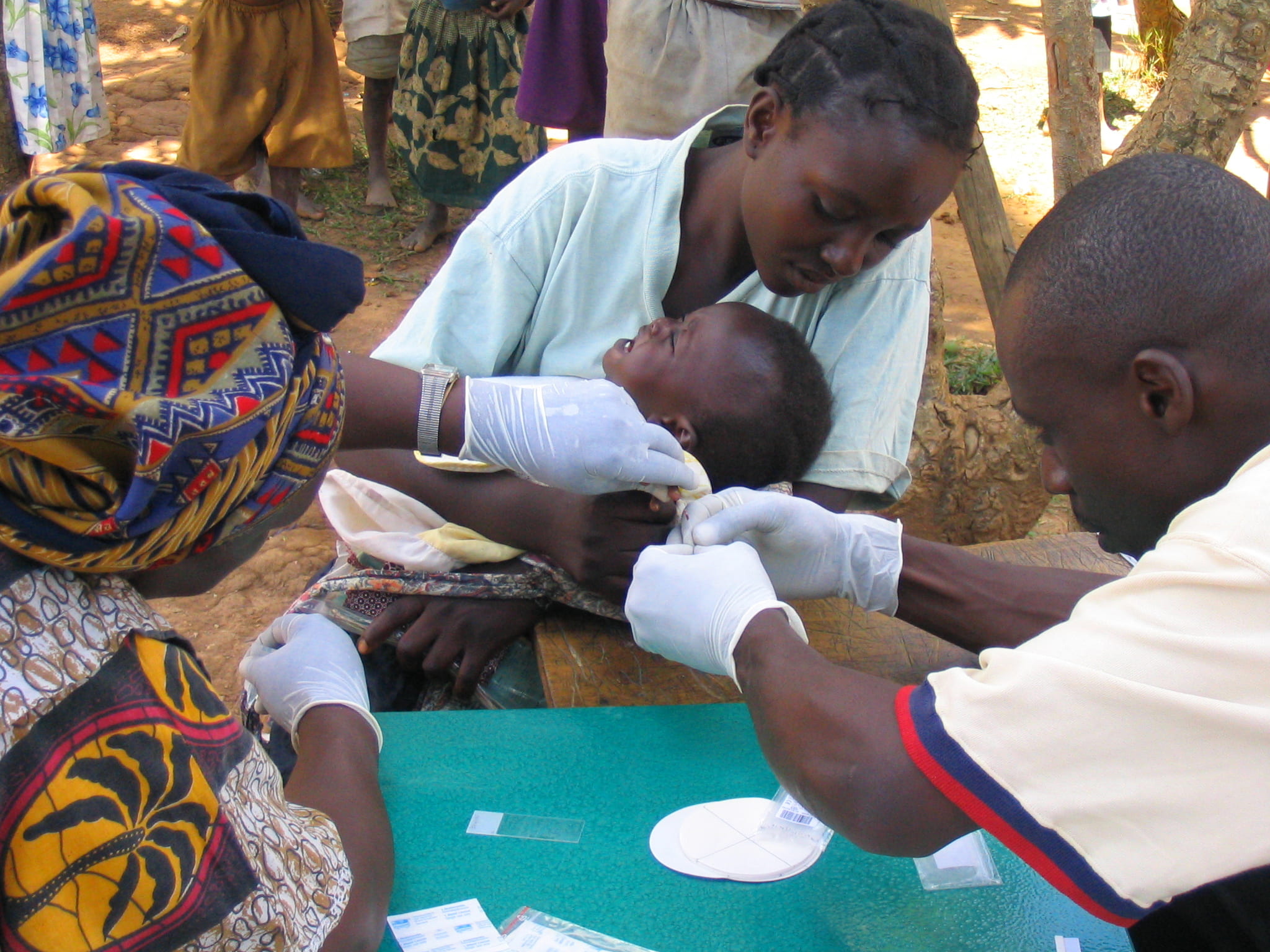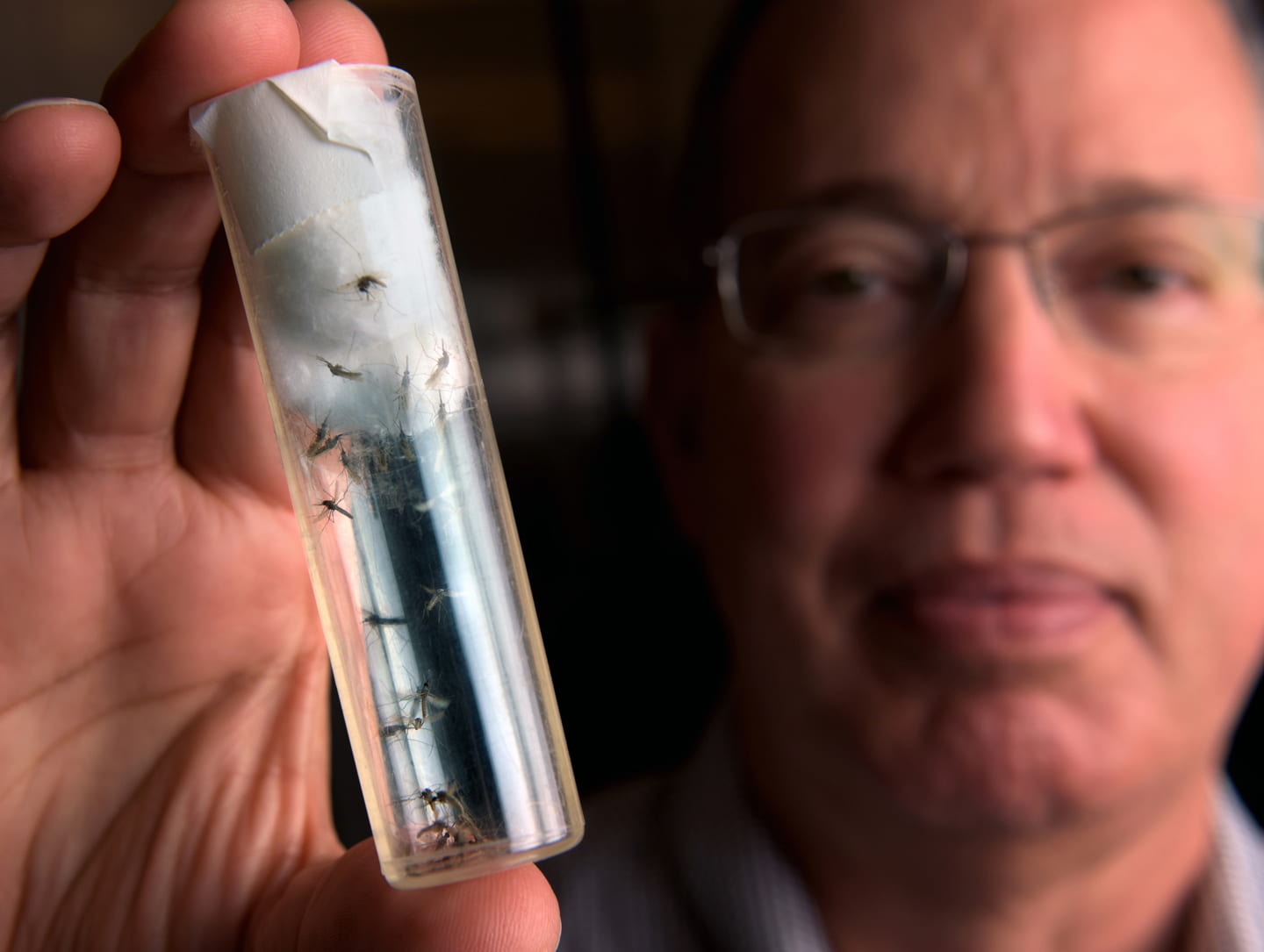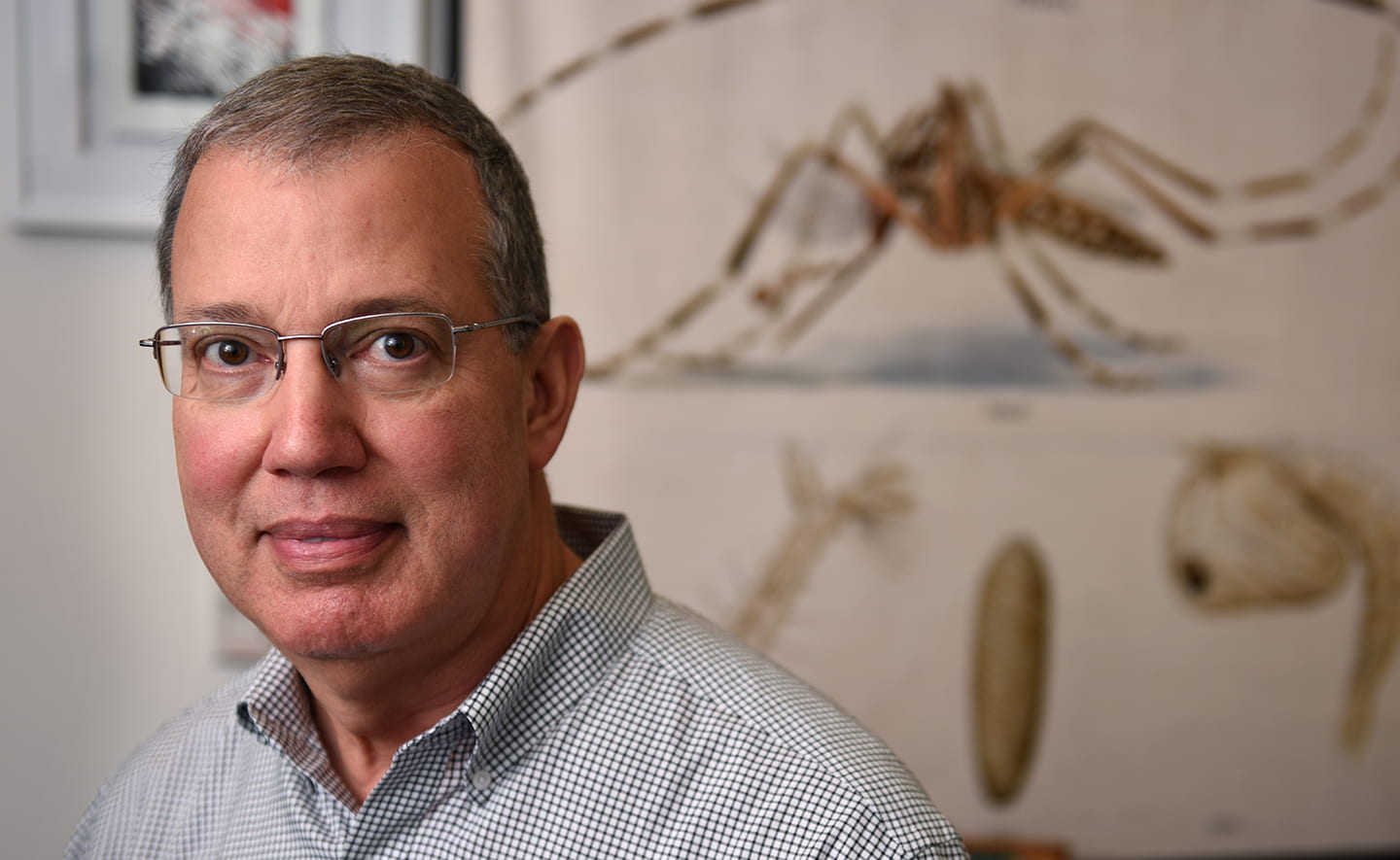Giving global health a shot in the arm
From on-campus labs to rural clinics in Asia, Africa and Central America, UCI researchers and students strive to mitigate illnesses affecting millions.

UC Irvine ecology & evolutionary biology grad student Thomas Gilbreath grew up swatting at summer mosquitoes in the woods of Wisconsin. But the global impact of his research on mosquito infestation didn’t hit home until he served a fellowship in Southeast Asia – where he visited a Cambodian hospital crammed with patients desperately ill from malaria and dengue fever.
“The hospital was literally overflowing with sick people, and the windows were open to mosquitoes,” Gilbreath says. “So there’s mosquito-borne dengue fever throughout the hospital, and I’m getting bitten by the insects flying in the open windows. That was the first time I saw how something so simple, like window screening, could be so effective.”
The experience convinced him to change the focus of his research to “simple, cost-effective measures to reduce mortality without breaking the bank,” and Gilbreath has subsequently traveled as far as the highlands of Kenya to help lessen the scourge of mosquito-borne disease.
His work is just one component of the growing global health effort at UCI. From on-campus labs to rural clinics in Asia, Africa and Central America, university researchers and students strive to mitigate illnesses affecting millions.
Fittingly, in conjunction with the University of California’s Global Health Institute, UCI is hosting the first UC Global Health Day on Nov. 30 in the Student Center. Highlighting the day’s events will be a keynote address by Dr. Roberto Tapia-Conyer, director-general of the Carso Health Institute in Mexico City, who will speak on “Major Trends in Global Health: A Social Investment Perspective.” The talk is part of the Chancellor’s Distinguished Fellows Series.
In addition, video programs on some of UCI’s research efforts in malaria, dengue fever and industrial pollution around the world will be featured throughout the day on a new Hiperwall. The 200-megapixel, tiled video display was just installed in the Student Center.
“UCI is the perfect campus to host the inaugural UC Global Health Day because of its deeply entrenched tradition of multidisciplinary collaboration and community engagement,” says Dele Ogunseitan, a UCI public health professor whose studies on environmental pollution have had worldwide impact.
While the university’s global health reach is broad, its researchers have gained considerable attention for their efforts to combat mosquito-borne malaria and dengue fever.
In his lab, Distinguished Professor of microbiology & molecular genetics Anthony James has created genetically modified mosquitoes incapable of transmitting the malaria pathogen or dengue virus. With Bill & Melinda Gates Foundation support, he and an international team of scientists are now exploring the release of dengue-resistant mosquitoes in controlled environments in Chiapas, Mexico.
Guiyun Yan, professor of public health and ecology & evolutionary biology, is leading field research in Africa and Southeast Asia on the ecology of malaria.
As a doctoral student in Yan’s group, Gilbreath spends time in Kenya examining how changing land-use patterns promote insect proliferation. For example, some villagers have deforested highlands to create farm plots next to their homes and have dug drainage ditches to carry rainwater. These ditches become fresh mosquito breeding grounds.
“Essentially, when you’re building that farm around your house, you’re also building a mosquito farm,” Gilbreath says. “This is an ever-increasing issue, especially in the face of more land-use change. Right now in the Amazon, for instance, there’s a very similar pattern of deforestation that’s really increasing the malaria-affected population.”
He has zeroed in on the microbial algae and bacteria that feed mosquitoes, which appear to flourish in the extra sunlight of denuded areas. Gilbreath notes that his field research is augmented by the cutting-edge laboratory and computer equipment he uses at UCI to break down huge sample pools.
“As time goes on, this work should have implications for the importance of sustainable development and for medicine,” he says. “Seeing what insect-borne tropical disease can do to a community has highlighted how very small things that cost very little can make a big difference. We can build that up to a larger community level, and then a country level, and then attack the malaria belt that goes around our whole globe.”


